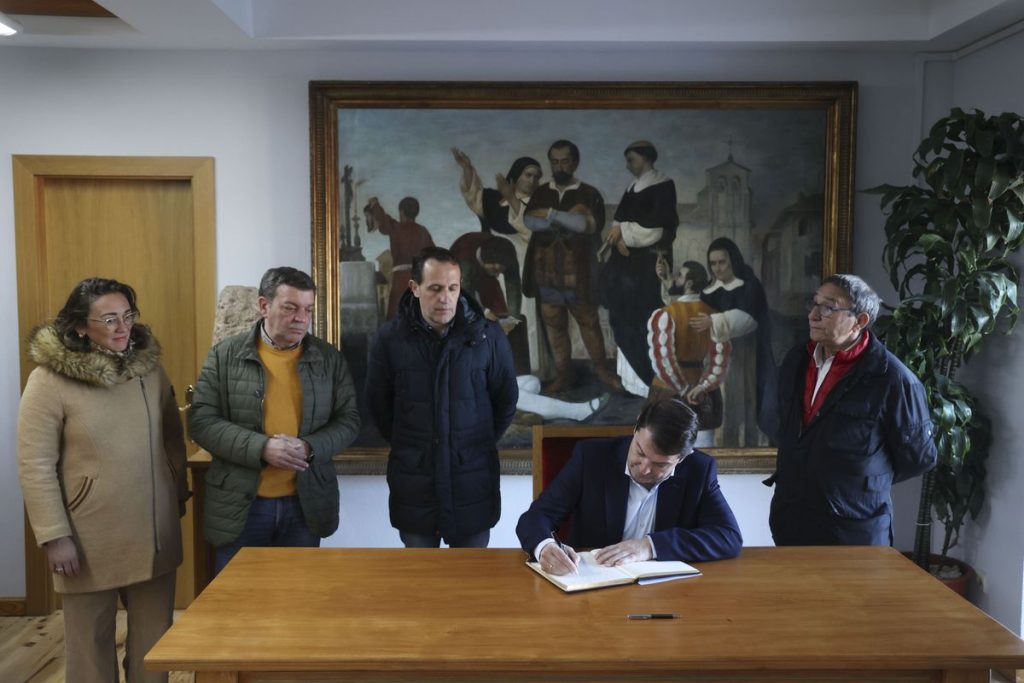Alfonso Fernández Mañueco, the President of Castilla and León, called for a celebration of the region with “tolerance, freedom, joy, and pride” in a formal tone. His speech took place in Villalar de los Comuneros, a small village with few attendees aside from a group of journalists. The visit to the monument honoring the failed uprising against the troops of Carlos I of Spain in 1521 was criticized by the opposition as “clandestine”. The political atmosphere was charged due to upcoming European elections, with criticism directed towards the government for the controversial plan to decentralize the celebration of Villalar.
Mañueco’s speech did not convince the campers who had spent the night in the campsite, enduring freezing temperatures. As the day progressed, the crowd in Villalar grew with flags and shirts displaying various left-wing symbols. Politicians and activists used the occasion to criticize Mañueco and his far-right allies. The traditional procession towards the monument to lay floral offerings was accompanied by readings of an ode to hope by politicians such as Óscar Puente, who took jabs at Mañueco and his government’s policies.
Political parties arrived at the square in Villalar with urns on their heads, symbolizing their commitment to the region. Irene Montero, the Podemos candidate for the European elections, emphasized the need to resist against the current government and its plan to decentralize Villalar’s celebration. The Socialist party, led by Luis Tudanca, denounced Mañueco’s clandestine visit and criticized the government for fostering discord and hatred with controversial measures. Enrique Santiago of the Communist Party and Sira Rego of Izquierda Unida also highlighted the importance of defending democratic values and peace.
Although the celebration was meant to honor the historic events of Villalar, tensions arose in some regions, such as in León, where protesters burned a castle in opposition to the government’s decision to hold events on April 23. Despite the political speeches and displays of dissent, many attendees at the event enjoyed traditional music and dances, reflecting on the significance of the communal spirit in Castilla and León. The diverse crowd shared concerns about the government’s attempt to divide the region and reduce the impact of the Villalar festivities.
The occasion brought together people of various ages and backgrounds, with some questioning the government’s motivations for decentralizing the celebration. Critics highlighted the decreasing funding and attention given to Villalar, causing a sense of neglect and abandonment in the historic event. While some saw the decentralization as an opportunity to spread the celebration to other provinces, others expressed skepticism about the government’s true intentions. Overall, the atmosphere in Villalar was a mix of political statements and cultural expressions, with attendees reflecting on the significance of maintaining the traditions and values of Castilla and León amidst a changing political landscape.


